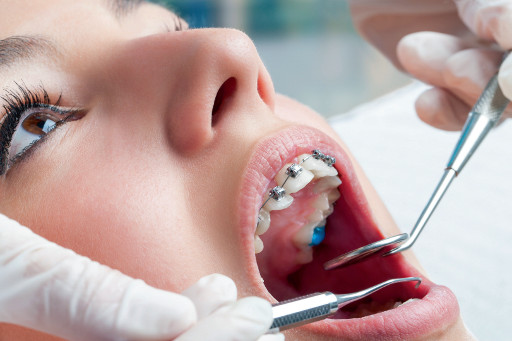Supporting daily oral care routine
In Insight
Follow this topic
Bookmark
Record learning outcomes
Most pharmacies are aware of the growth of the oral care category, but what can be done to take the category further? P3 speaks to Soha Dattani, dentist and area medical director at GSK.
 Demographic changes are having an impact on all aspects of healthcare, and dental care is no exception. With an ageing population, people are living longer and retaining their teeth longer, points out dentist Soha Dattani. This means that there is greater potential for dental problems, meaning that education on the importance of oral disease prevention and a stronger focus on general oral care will be even more important in the future.
Demographic changes are having an impact on all aspects of healthcare, and dental care is no exception. With an ageing population, people are living longer and retaining their teeth longer, points out dentist Soha Dattani. This means that there is greater potential for dental problems, meaning that education on the importance of oral disease prevention and a stronger focus on general oral care will be even more important in the future.
'Promoting the benefits of the daily oral care routine is a must,' says Ms Dattani. One in four people, and one-third of men, don't brush their teeth twice a day, she says. But if you brush only once a day, you are 33 per cent more likely to get decay. 'It's essential to look after your teeth and gums: 73 per cent of people suffer bleeding of the gums at some point, but only one in six do anything about it. Gum disease is the leading cause of tooth decay €“ we need to stop it.'
Consumer education is going to be core to ensuring the preventative message gets across, she says. 'Compliance with a tailored oral care routine is key to getting consumers to change their behaviour. Just using toothpaste and a toothbrush is now no longer enough.'
Personalised approach
Because there is a range of different oral care issues that can affect quality of life, there is an opportunity for a personalised approach to oral care advice in pharmacy, she suggests. 'Every mouth is unique and we need to give people advice about the right products.' For example, sensitivity affects half of adults at some point, but less than one-third buy a product to help.
Using a product that will help with sensitivity, such as GSK's Sensodyne, is a 'quick win' for sorting out the problem, she says. Dental practices have changed, but the ageing generation has lots of metal fillings and bridges that need to be maintained. 'These are not easy to keep clean, so people need to use specialist product. Corsodyl forms a protective layer over the teeth for 12 hours. If they see that initial bleeding: are they using the right toothbrush and the right toothpaste or need specialist products?'
Dry mouth is also an area that pharmacy teams are aware of, she says. 'As we get older there's an increased chance of taking multiple medications. If they are taking three medicines or more, people have a 50 per cent higher chance of xerostomia. As saliva is protective, this brings an increased risk of future oral disease and it's so important to maintain a salivary balance.'
She suggests having conversations around GSK's Biotene product. Denture care is also an area that is not focused on enough, she suggests. 'Missing teeth can be a huge burden for people, but they don't know what to use to clean dentures properly. Acrylic is softer than natural teeth and people shouldn't clean denture with a toothpaste as it will scratch the surface, making it more likely to harbour bad bacteria and bad breath.'
GSK's Poligrip cleanser cleans without scratching, she says, and is a product that people are more likely to buy at the pharmacy as it's a product they don't want other people to be able to see in their shopping trolley in the supermarket. 'They don't otherwise have anyone else to talk about issues with their dentures.'
Pharmacy collaboration
'The pharmacy team has a role in explaining the products and they provide trusted advice and research suggests that people see the pharmacy environment as more trusted to ask questions, she says. Messages to help consumers to explore the shelf, are needed because the oral care shelf 'can be confusing'.
'Think about the vital role you can play in treating conditions. You understand formulations and ingredients and can help to explain the pros and cons.'She suggests that pharmacists and dentists should be working as closely together as possible to 'reinforce the messages'. The dental contract now focuses on communication skills and helping patients to take more ownership of their own oral health, she says.
'Oral health is part of general medical health. The opportunity in this category is much more than a sticker in the window.'
